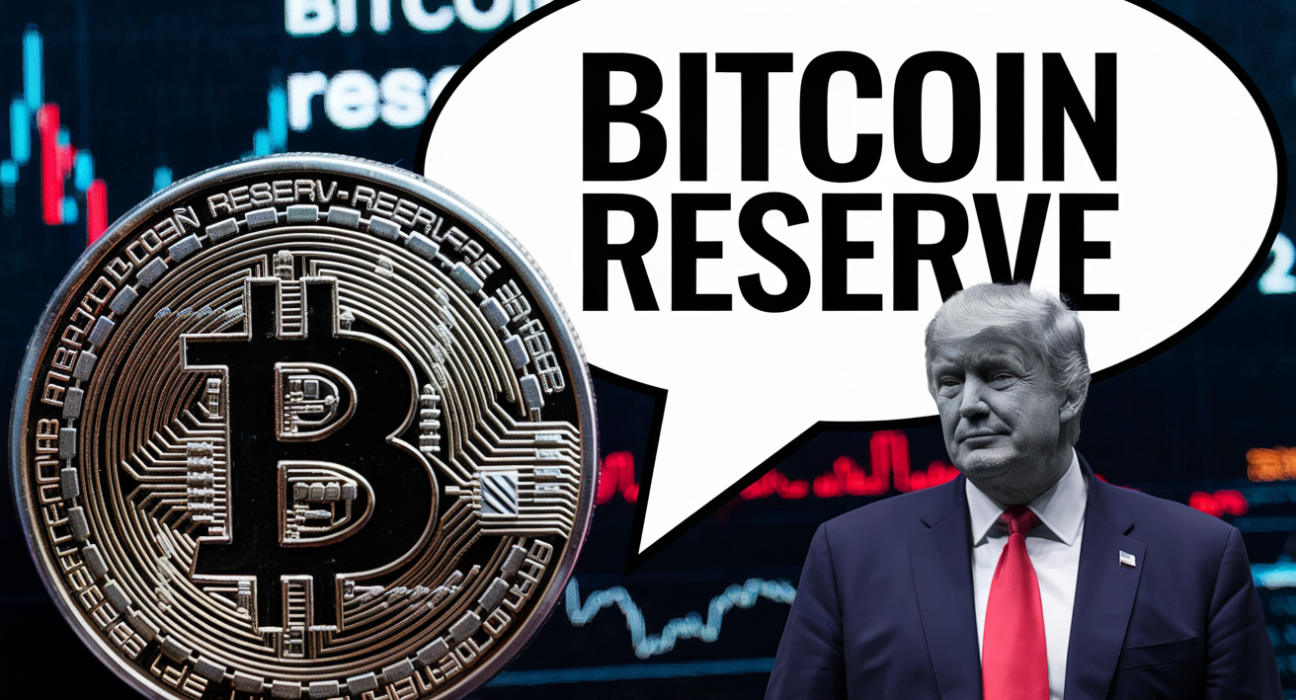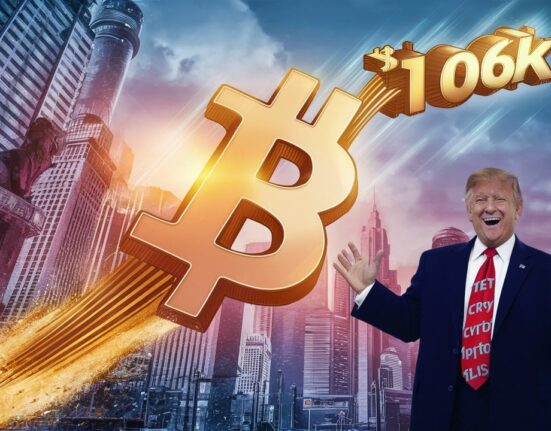[ad_1]
Since Donald Trump’s re-election as president of the United States, the crypto market has been buzzing. Bitcoin, for instance, has broken its All-Time High record several times in recent weeks. The Bitcoin reserve movement, on the other hand, is receiving a lot of attention from big players in the financial sector.
VanEck, a global investment management firm, is the most recent organization to express public endorsement for Trump’s strategic plan to have a US Bitcoin (BTC) stockpile. The head of research at VanEck, Mathew Sigel, has publicly come out to support the establishment of the $BTC reserve.
The announcement by Sigel shows that big institutional players have started to take the Bitcoin reserve concept seriously. Nonetheless, while many organizations favor the movement led by Donald Trump, critics of the campaign feel that the $BTC reserve might not be for the greater good.
Bitcoin Reserve Gets Support from Political Leaders
Besides institutional support from firms like VanEck, the Bitcoin reserve concept receives support from political leaders. Politicians at both state and national levels have also chimed in with support for such an idea. One such politician is Senator Cynthia Lummis, who has outspoken support for Bitcoin.
Lummis recently introduced legislation to sell parts of the U.S. gold reserve to buy Bitcoin. She feels that doing so will strengthen the nation’s financial footing and expand its reserve assets. Lummis’s proposal brought debates within Congress, where a few lawmakers supported her vision, while others had doubts over Bitcoin’s volatility and associated risks. Her efforts have brought to the fore in U.S. politics the issue of a national Bitcoin reserve.
At the state level, Florida’s CFO Jimmy Patronis supports the Bitcoin reserve strategy, adding to the storyline of the Bitcoin reserve movement gaining steam outside of Washington, D.C. Pennsylvania has brought forth legislation for a state-level $BTC reserve, so each state will have the ability to hold Bitcoin in their reserve portfolios.
The concept of $BTC reserve does not belong entirely to the hands of the United States. Other world leaders have also shown interest in bringing Bitcoin into national financial strategies. For example, Slawomir Mentzen, a libertarian leader in Poland, is campaigning on the promise of implementing a national Bitcoin reserve strategy for Poland upon his successful election.
Mentzen’s stand reflects a worldwide appeal for Bitcoin as a modern monetary asset that can counter inflationary pressures and increment a nation’s fiscal sovereignty. The international attention heaped upon Bitcoin reserves is a sure sign of the growing awareness of Bitcoin as a serious alternative to traditional reserve assets, such as gold.
Criticism of The BTC Reserve Concept
As the Bitcoin Reserve movement gains more support, some organizations and individuals have expressed discontentment with having Bitcoin as a reserve asset. BlackRock has taken a step back.
According to Eleanor Terrett, correspondent at Fox Business, sources close to BlackRock have offered insight that BlackRock does not support the strategic BTC reserve, even though previous reports have shown otherwise.
Other critics think BlackRock is more concerned about blockchain technology and asset tokenization than Bitcoin adoption. The firm has been on a buying spree as BlackRock bought more Bitcoins through its IBIT ETF and other direct purchases. The Data from Arkham points out that BlackRock currently holds 471,707 BTC worth about $43.53 billion, outlining their rising activity in the crypto sector despite their cynicism toward Bitcoin as a reserve asset.
$BTC Reserve As a Hedge To Inflation
With Bitcoin’s maturity as an asset, it has become increasingly important in the world financial markets. Supporters of the Bitcoin reserve believe it will hedge inflation and political instability, making the country’s finances more resilient by diversifying away from traditional assets such as gold or foreign currencies.
[ad_2]
Source link









